July 19, 2019
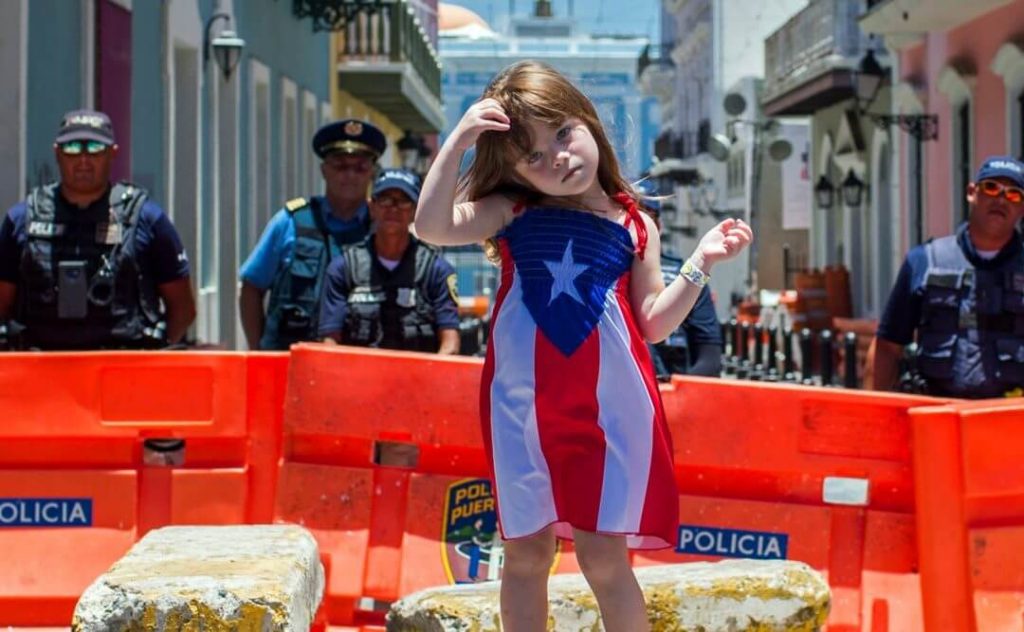
CANVAS Weekly Report July 19th

Communst-run Cuba passed sweeping governance reforms that solidifies a one-party system, while restructuring its government to have a prime-minister and provincial governors. The new law, which was unanimously approved, amends the 1976 constitution that vested all power into the president by outsourcing power to the legislative body and the prime-minister. The new law allows for two five year terms by the prime minister and shrinks its representative body from an unwieldy 605 to 407–– a number that is expected to shrink even further. The law aims to lighten the bureaucratic load on single-figureheads –– like the president –– and instead boost policy execution by more legislative bodies. Cuba has long touted its governance structure as more democratic than other Western powers but many are hoping that, Miguel Diaz-Canel, who took the presidency from Raul Castro last year, would further restructure its one-party system in light of Cuba’s social and economic over the last decade.

On July 15th, the president of the Gabonese Patriotic Front (FPG), Gérard Ella Nguéma was arrested by the judicial police prior to taking part in a march in the town of Libreville. A FPG spokesman stated: “We still do not know the reason for his arrest,” adding that “it is possible that this is related to the somewhat harsh remarks that Nguema made against the Gabonese authorities during a press conference last week.” The spokesman was referring to a July 7th speech in which Nguéma accused several close relatives of Gabonese President Ali Bongo Ondimba, who is currently recovering from a stroke in late October of a stroke, of trying to “manipulate” him. In his speech, Nguéma attacked the chief of staff of President Brice Laccruche Alihanga , the first lady Sylvia Bongo Ondimba and the president of the Constitutional Court Marie-Madeleine Mborantsuo. The arrest of Nguéma comes days after the arrest of four leaders of Gabon’s main trade union coalition, Dynamique Unitaire, which declared in early July that Gabonese President Ali Bongo Ondimba was “dead”.

Bolivia has one of the highest rates of femicide in the world and the highest in South America, officially declared it a national priority. Since January, 73 femicides –– a term to denote men who kill women based on gender –– which is roughly one woman killed every two days and the highest since 2013. A ten point “emergency plan” seeks to combat femicide and domestic violence through increased funding, the creation of a government commission, obligatory training courses for civil servants and public sector employees on gender violence and prevention, and teachers will also receive training about “the psychological, sexual and physical violence” women and girls face. Femicide usually goes unpunished or univestigated in bolivia with 288 out of the 627 cases since 2013 left open.

Last week, the Inter-American Commission On Human Rights (IACHR) Special Monitoring Mechanism for Nicaragua (MESENI) denounced the continued and recent escalation of religious persecution. The repression, which is now targeting religious celebrations, is classified by IACHR as constituting “grave restrictions of public liberties.” The Daniel Ortega regime has restricted political assembly and dissent with over 700 political prisoners since April of 2018 but has increased religious persecution. The MESENI report states that the Ortega regime’s police frequently kidnap demonstrators at places of worship following services or mass: “These events occur within a context of increasing threats against the Catholic Church and religious leaders.”

Rates of malnutrition and starvation have jumped in North Korea after it faced a dire drought in May. The severe drought has resulted in an underwhelming harvest; farmers harvested half of what was expected, according to the International Federation of Red Cross and Red Crescent Societies (IFRC). South Korea has sent 50,000 tons of rice over the border, as well as donating millions of dollars to the UN World Food Programme and the UN Children’s Fund, in order to help North Korea through their struggle.

The U.S. has announced sanctions on some of the top ranking officials of the Myanmar military. Myanmar’s Commander-in-chief, Deputy Commander-in-chief, as well as two generals were all banned from entering the United States. Last Tuesday, the Department of State said that they took action after evidence arose of the four’s involvement in violence against the Rohingya. Persistent violence against the Rohingya minority has been the leading contributor to the United States’s involvement in Myanmar. The presence of human rights violations has forced over 740,000 Rohingya Muslims to cross the border to reach Bangladesh.

President Donald Trump said last Sunday that “Progressive Democratic Congresswomen” should go back to their country, in a series of tweets that have ben labeled as “xenophobic” by House Speaker Nancy Pelosi. “I reject @realDonaldTrump’s xenophobic comments meant to divide our nation. Rather than attack Members of Congress, he should work with us for humane immigration policy that reflects American values,” said Madame Pelosi. President Trump’s tweets targeted representatives Alexandria Ocasio-Cortez, Ilhan Omar, Ayanna Pressley, and Rashida Tlaib. At a Trump campaign rally in North Carolina, supporters chanted “Send Her Back” targeted against Omar. Trump disavowed the chant the next day, saying he “disagreed with it” but during the rally he did not stop the racist chant.

The US House of Representatives recently approved a legislation that would target Cambodian officials that helped arrest peaceful activists that were commemorating the death of political activist, Kem Ley. The legislation, known as “HR 526 Cambodia Democracy Act”, currently has to pass through the senate in order to receive a seal from President Donald Trump. The legislation specifically calls for the reinstatement of Kem Sokha, the leader of the Cambodia National Rescue Party, as well as the restoration of the CNRP’s seats in the Cambodian Parliament. The cambodian government has been regularly accused of violating human rights, and has been called out for unfair elections, as well as political oppression.

On July 16th, Zimbabwean civil servants’ union protested in Harare against “slave salaries”, caused by the massive spike in inflation caused by the reintroduction of the Zimbabwean dollar as the sole legal tender. Inflation rose from 97% in May to 176% in June, pricing many Zimbabweans out of basic foodstuffs and necessities like gasoline, electricity and water. The protesters threatened to strike if their wages will not be increased. The price hikes are exacerbating the food and water deprivation caused by a major drought leaving two million people in Harare and Bulawayo with minimal access to clean water.
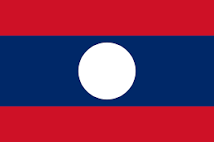
This week, the Ministry of Information of Laos has ordered registration of social media news platforms by the proprietors of accounts posting news and information, under pain of legal action. Users of social media that post news on their accounts that refuse to register may be fined 4 to 20 million kip (460 to 2290 USD), or face imprisonment for three months to three years. Laos has several major criteria to register a media organization, including ideology, thus making this order effectively a crackdown on independent reporting in social media.

This week, the World Health Organization declared an international emergency over the Ebola epidemic in the eastern part of the Democratic Republic of the Congo (DRC) that has killed over 1500 people so far. The emergency was declared after a case of Ebola was found in the city of Goma, which has 2 million people and is an important gate to Rwanda.
In other news, the government of the DRC promised to reestablish the transmission of RTVS1, a television channel run by one of the leaders of the opposition group Lamuka, which was cut off in late June, after broadcasting a message from the opposition leaders. The promise, however, was conditional upon state censorship of broadcast material. Lamuka also saw one of its leaders, Freddy Matungulu, step down after being offered a job in the African Development Bank, in a move that recalls the former president Kabila’s strategy to neutralize opposition by coopting them with positions of power.

Over the weekend, the Bishops of Latin America issued an indirect statement to Nicolas Maduro. Archbishop Miguel Cabrejos Vidarte of Trujillo, president of the Conference of Latin American Bishops, sent out a letter last Friday to express their concern for the “illegitimate and failed” government of Maduro. Additionally, Vidarte included words of encouragement for the starving citizens, as well as praisal for Caritas Venezuela, a branch of the local catholic church that provided food and aid to the struggling civilians.

In a step towards strengthening democracy, Malaysia’s parliament is debating this week over a proposal to amend the constitution to lower the voting age to 18. The proposal also includes measures to allow people to stand for elections once they turn 18 as well as automatic voter registration. Malaysia remains one of the only countries in the world where the voting age is 21, as 90% of countries have a voting age of 18. If passed, this will be the first time that the country’s government and opposition parties have worked together on a proposal to change the country’s constitution. The lower house passed the bill by a vote of 211-11, and the bill has to be approved by the Senate before it becomes law. The new amendment would add 7.8 million people to the electoral roll by 2023, in a country of 32 million people.
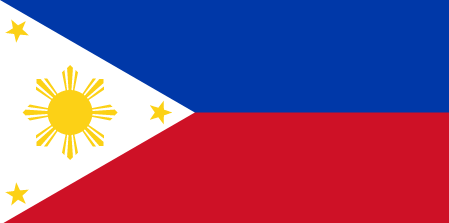
Philippine President Rodrigo Duterte called on the United States this week to send a naval fleet to the South China Sea under a mutual defense treaty. The ask is in order to exert more pressure on China over incursions by Chinese fleets into Filipino territory in the South China Sea. Facing pressure over his recent handling of an incident with the Chinese in the South China Sea, Duterte said he is prepared to invoke the 1951 Mutual Defense Treaty to gain US aid. Facing aggressive Chinese expansionism in the sea, Duterte acknowledged that the Philippines does not have the strength or resources to stop it. Though US Secretary of State Mike Pompeo assured the Philippines that it would back them militarily over Chinese aggression, it is unlikely that the United States will respond to Duterte’s request.
Health officials in the Philippines have also declared an emergency over an alarming spike in the number of dengue patients this year, as over 100,000 cases have been reported since January. This represents an 85% increase in the number of cases over the same period in 2018, prompting officials to issue the first ever national dengue alert. Officials are preparing to use military hospitals and clinics to treat the mosquito-borne disease, which affects about 390 million people annually.

There have been new developments in the rising tension between Vietnam and China in the South China Sea. The Chinese have deployed ships to the Vanguard Bank to prevent Vietnam from “advancing its interests in the region before a deal is reached on a code of conduct for the South China Sea,” according to the South China Morning Post. Beijing hopes that a deal can be reached by 2021 to establish claims over oil and gas reserves in the area.
The Political Bureau of the Communist Party of Vietnam Central Committee on July 19 decided to issue a disciplinary warning against Vu Van Ninh, former Deputy Prime Minister. According to the Bureau, Ninh signed documents allowing the equitisation and divestment of State capital from Quy Nhon Port JSC and Quang Ninh Port JSC. Both of these actions were violations of the party’s principles and tarnished the prestige of the party.

When the United States increased tension between Iran by pulling out of the Iran Nuclear Deal and imposing harsher sanctions, Iran clinched to European powers who remained in the deal. But on Thursday, Iranian boats “tried to intercept” a British oil-tanker which is “contrary to international law” according to a BP spokesman. SMH Montrose, a Royal Navy ship later forced to move to move between the Iranian boats to protect it. Two weeks before the BP altercation, the United States claimed Iranian forces had bombed two oil tankers in international waters. An allegation that Britain back but the Iranians disputed, calling the White House “mentally retarted.” This week, Iranian President Hassan Rouhani mocked Britain calling it “scared” and “hope

The deal solidifying a transitional power-sharing council was made official in Khartoum this week. Civilian protest leaders and ruling military officials signed an accord outlining a transitional council made up of both civilians and military personnel that aims to lead the country to democracy. The body will be made up of 11 individuals (6 civilians and 5 soldiers) and the protest movement has been charged with nominating a Prime Minister. The two parties are also currently drafting a constitutional declaration. Whether members of the Transitional Military Council (TMC) will be tried for the killing of civilians remains to be seen, and although a deal has been signed, Sudanese protesters are still demanding justice for the murderous actions of the TMC in June.
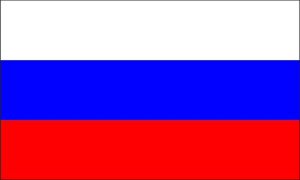
Early this week, it was announced that Russia would soon start jointly producing S-400’s with Turkey; shortly after this announcement, the United States pulled Turkey from its F-35 program, indicating high tensions between Washington and Moscow as the deadline for the INF treaty draws closer. On July 18th, NATO Secretary-General Jens Stoltenberg urged Russia “to take the responsible path” and destroy a newly developed missile so as to preserve the INF treaty. The US has claimed it will formally withdraw from the INF treaty if a deal is not reached by August 2nd, leaving both countries to freely develop medium-range nuclear missiles.
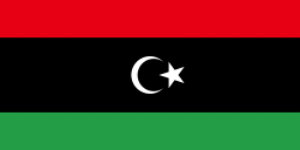
The turmoil in Libya continued this week with the kidnapping of a Libyan MP, the explosion of car bombs and an air strike on a field hospital. On July 11th, a Libyan official confirmed that multiple car bombs had exploded in the vicinity of Libyan National Army (LNA) leaders while attending a funeral service, leading the LNA to accuse the Government of National Accord (the U.N.-backed government) of the attack. The bombing did not kill or wound military leaders, but 2 civilians and 2 soldiers were killed. On July 17th, the LNA carried out an air strike on a GNA field hospital which killed at least 3. On the same day, it was reported that Libyan MP, Siham Sirgiwa, has been kidnapped by LNA forces; the UN mission in Libya (UNSMIL) has called for her release and LNA forces have yet to respond. Britain, France, Egypt, the UAE, the US and Italy released a joint statement early this week urging de-escalation in Libya, but the statement does not appear to have had an immediate impact as violence has only continued.
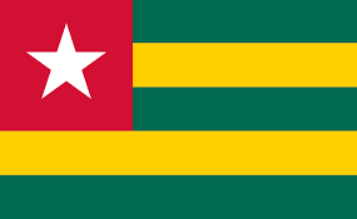
This week, Togo announced an agreement with The United Arab Emirates’ Khalifa Fund for Enterprise Development (KFED). The agreement includes a set of guidelines to be followed for the partnership which will provide over $15 million funding assistance to small and medium enterprises in Togo. The agreement is estimated to finance nearly 4,000 projects and provide around 13,000 new job opportunities primarily across agricultural and technology sectors. The project is aimed at helping youth and 40 percent of the projects will be reserved for women. The agreement was signed last March by H.E. Hussain Jassim Al Nowais, Chairman, KFED and H.E. Noël Bataka, Togo Minister of Agriculture in Lomé.
Additionally, Togo signed a memorandum of understanding with the International Finance Corporation (IFC) to develop and construct Solar projects. The details for the project have not been disclosed, but the projects will be developed under the pre-existing Scaling Solar Initiative, and finalized in the next two years. Togo frequently experiences energy shortages and according to USAID, they are supplied with power from hydropower and thermal plants imported from Ghana and Nigeria. Togo’s access rate to power is only around 28 percent currently and the government hopes to raise this to 75 percent in 2020 with full access to power by 2030.

The Roman Catholic Church, which makes up 5 percent of the Eritrean population of 6 million reports being under attack from President Isaias Afwerki’s regime. Nuns reported being evicted from their residences in church run-hospitals in the village of Zager, which is 20 miles north of Asmara, the capital. The church reports soldiers in military fatigues raided church convents that ran health clinics and forcibly took over. The church says nearly two-dozen Catholic run clinics have been closed in the last month.

Over one-tenth of European Parliament members came together to call for the government of Hong Kong to formally introduce democratic reforms, withdraw its extradition bill and to demand an EU-wide ban on supplying weapons to the city’s police. On Thursday (18 July), the European Parliament passed a cross-party, multinational motion to “strongly condemns the constant and increasing interference by China in Hong Kong’s internal affairs, as well as the recent assertion by China that the Sino-British Joint Declaration of 1984 is a historic document and hence is no longer valid.” Next, the recommendation will be forwarded to the European Council. The motion demands the immediate release of peaceful protestors and echoes their demands for the government of Hong Kong to set up “independent, impartial, effective, and prompt investigations into the use of force” by police during recent protests. Currently, Britain and Germany are independently considering suspending arm sales to police in Hong Kong. Thousands are joining the protests in Hong Kong each week, many demanding universal suffrage.
Beijing called the European motion full of “ignorance and prejudice”. Chinese officials are working quickly to develop their own strategy to deter political chaos and have ruled out using military force. Reports say Beijing doesn’t want to get involved directly and hopes Hong Kong authorities will resolve the situation. China condemned the joint motion for the European Parliament motion to “investigate export controls and deny China and Hong Kong access to technologies”.
Children at an eSwatini school are being forced to work as groundmen because the government has not paid a grant it owes the school. Reports say children at Vulamehlo are cutting grass, sweeping the school yard and picking up paper, duties a groundsman used to do, before he lost his job due to the school not paying him. This school and many others across the kingdom have yet to receive their free primary education (FPE) grants from the government. Because of the lack of funding, students are also being denied meals, and an estimated 6 in 10 schools do not have enough teachers. After the government banned a witchcraft and magic competition, it received international support.
Indonesia: Over the weekend, President President Joko Widodo and defeated rival Prabowo Subianto met on the new Jakarta subway to discuss the future of Indonesia. The meeting marked the first time the rivals have met face-to-face since violent protests over the candidacy erupted in the capital. The reunion went smoothly with citizens taking pictures as the two exchanged smiles and handshakes. Afterwards, Subianto said that he would help President Widodo and the Indonesian government in any way he can, “because democracy requires checks and balances.”
San Juan, Puerto Rico: Protests broke out in Puerto Rico –– likened to those that happened during military presence in 1999 –– demanding the resignation of Governor Ricardo Rosllo after hundreds of pages of private messages between Mr. Rosselló and some of his closest aides were leaked on Saturday. The messages revealed a slew of crude and inappropriate exchanges; some are homophobic, others are vile nicknames and attacks against journalist. The messages come in the wake of large corruption arrests which unleashed months of built-up frustration over Mr. Rosselló’s handling of Hurricane Maria, his education policies, and the federal oversight board that controls Puerto Rico’s troubled finances. While police used tear gas and pepper spray to stop protesters who damaged property, Governor Rosello applauded the protests calling it “an expression that I respect and keep very much in mind.” Other senior officials implicated already resigned, but Rosello is yet to do so saying they were inappropriate but not illegal. The protests continue featuring a number of high-profile Puerto Ricans, including the actor and playwright Lin-Manuel Miranda, singer Ricky Martin and trap artist Benito Martínez Ocasio, known by his stage name Bad Bunny, have also lent vocal support to the protests.
Algeria: General Gaid Salah, Algeria’s de facto military leader, has increased crackdowns on demonstrators whose mass mobilization resulted in the end of the authoritarian rule of Abdelaziz Bouteflika. The military authorities have arrested dozens of protesters, blocked access to news websites, and, in preparation to the African Cup finals, where Algeria will face Senegal, it has also engaged in a media crackdown. Salah has also stoked ethnic tensions in the country by arresting protesters that fly the flag of the Berbers, an ethnic group indigenous to Algeria and other countries of North Africa.
Johannesburg, South Africa: In 2009,the UN declared through a resolution that July 18th to be Nelson Mandela International Day as a call to action against bigotry, racism, and hatred. And on its 10th anniversary, the UN Secretary-General António Guterres asserted that “on this day of reflection on Nelson Mandela’s life and work, let us embrace his legacy and aspire to emulate his example.” Activists, leaders, and layman alike all inherit the vast void Mandela left with his unconditional commitment to nonviolence, the persistence for a better tomorrow, and the fortitude he bestowed to the people of South Africa and the world –– and we ought to not just emulate him, but his message of a better tomorrow.